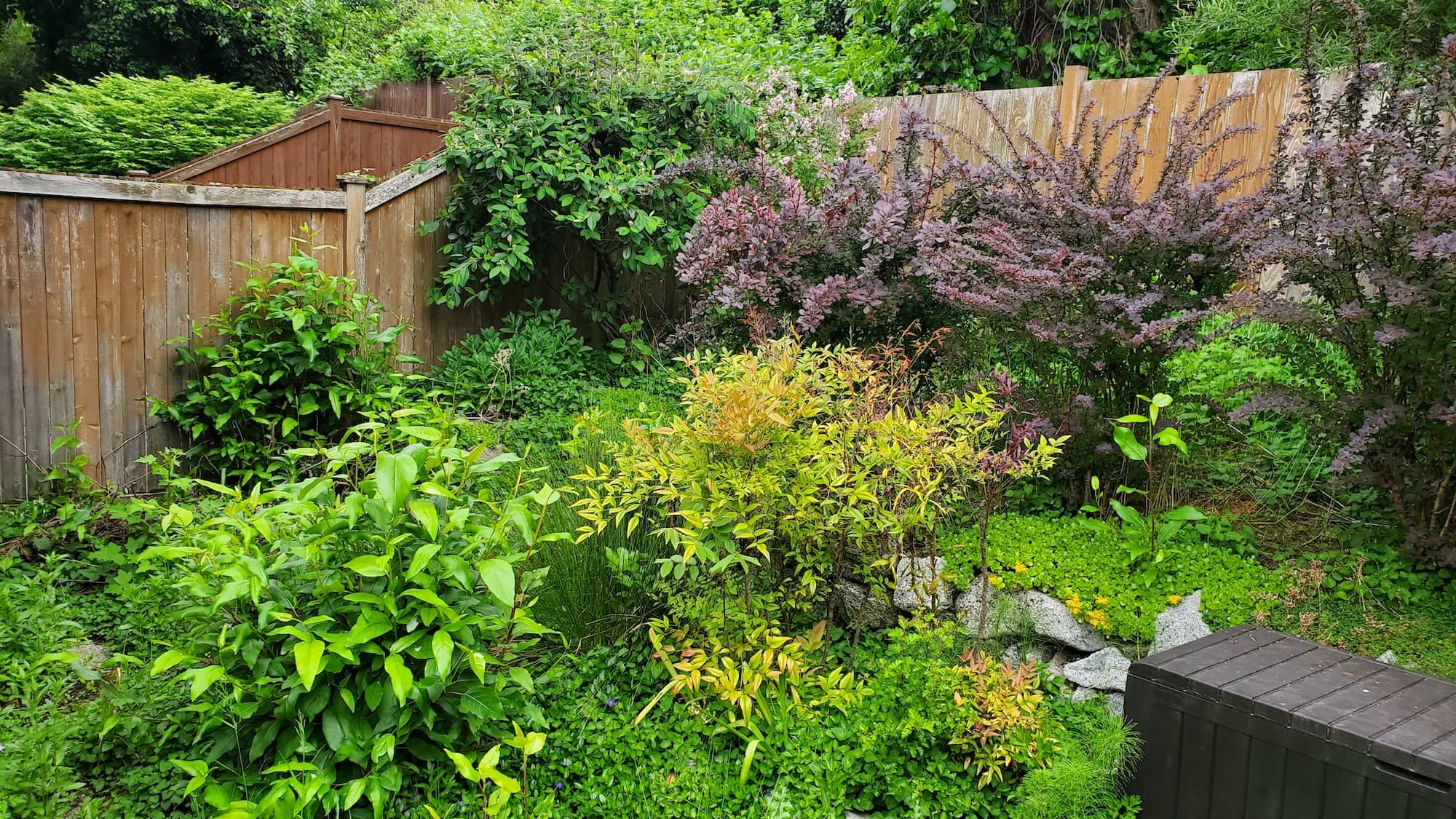West Seattle Trumpet vine removal
Homeowner’s Issue
Trumpet vine (Campsis) shows up fast on West Seattle fences, porches, and native trees. On the sunny, wind-exposed slopes around Alki and the shady gullies toward Lincoln Park, vines root in cracks, climb chain-link, and hide structural damage until it’s serious. West Seattle soils range from compacted glacial till in the hills to deeper loamy patches in lower yards; that means roots can run deep where soil is loose and cling tightly where it’s compacted. Heavy fall and winter rains compact topsoil, encourage moss and ivy, and produce a surge of new vine shoots each spring. Many homes here have steep grades or terraced beds that funnel water and plant material; that accelerates re-establishment if roots aren’t removed.
HOA rules and curb appeal matter in Admiral and Morgan Junction; an overrun vine looks sloppy and can violate common-area upkeep standards. Homeowners who try a single cut often see regrowth within the season — trumpet vine resprouts from root fragments. Sustainable, mechanical approaches suit West Seattle best: repeated cutting, root excavation, smothering, and replanting with native or low-water alternatives reduce long-term maintenance without chemicals. Expect a couple of follow-up visits in the first 12–18 months to catch resprouts and protect newly planted replacements.
Our Quality Service
We remove trumpet vine using mechanical, sustainable methods: targeted cutting, root excavation, and debris haul-away. Our crew brings loppers, saws, mattocks, rotary root cutters, and tarps; we won’t use herbicides. Typical jobs on single-yard lots take 2–6 hours, with follow-up visits scheduled at 6 and 12 months if needed. For larger infestations or steep lots expect a full-day crew and staged work to protect slopes and irrigation lines.
Local insight: West Seattle’s rainy season means we time heavy digging for drier weeks to limit compaction and erosion. On slopes we install temporary erosion control and recommend mulch or planting to stabilize soil. We comply with city composting and green-waste rules and favor native, low-water replacements that suit the microclimates near Alki and Lincoln Park.
Benefits: minimizes regrowth, protects fences and structures, improves curb appeal, and lowers ongoing maintenance. Results last when combined with follow-up monitoring and replacement planting.
What’s Included
- Onsite assessment and written estimate.
- Mechanical removal: cutting vines to ground and removing aboveground material.
- Root excavation to remove the root crown and several inches of lateral roots where practical.
- Debris haul-away or curbside green-bin drop-off (client preference).
- Light cleanup: raking, edging, and a tidy finish.
Options / upgrades
- Mulch + landscape fabric installation for smothering regrowth.
- Organic soil amendments and planting of native alternatives (ocean spray, sword fern, red flowering currant).
- Regrading or gravel for improved drainage.
- Haul-away vs. green-bin sorting for compostable material.
- Temporary erosion control on slopes (straw wattles, biodegradable matting).
Before & After / Expectations
Expect cutting noise, some digging, and root-heavy debris. We protect lawns, set up tarps, and keep access points clear. If access is tight (alley, narrow side yards, stairs), let us know; that affects crew size and timing.
Typical timeline:
- Day 0: assessment and prep.
- Day 1: intensive removal (2–6 hours for most yards).
- Follow-ups: 6 weeks and 6–12 months to catch resprouts.
West Seattle care tips: new plantings need shelter from late-spring winds common on exposed lots. Water deeply but infrequently during dry summer spells; follow city watering guidance during droughts. Watch for spring flushes (March–May) — that’s when resprouts are easiest to catch. On shady north-facing slopes, moss and ivy pose additional pressure; plan on adding mulch and shade-tolerant natives to reduce future work.
FAQs
How long before the vine is gone for good?
Full control can take 6–18 months with mechanical removal and scheduled follow-ups to catch resprouts.Will removal harm my lawn or shrubs?
We protect existing plants and prune cautiously. Heavy root removal near prized plants may require targeted replanting.Do you use chemicals?
No. We use only mechanical and organic methods to remove and suppress trumpet vine.What about disposal?
We offer haul-away or green-bin composting depending on what you prefer and local rules.
Call to Action
West Seattle homes deserve tidy, low-maintenance yards that last. Book a free estimate and get a clear plan and price for mechanical, sustainable trumpet vine removal. Fast scheduling for Admiral, Alki, Lincoln Park adjacencies and the rest of West Seattle.
Email: neatandtidyseattle@gmail.com
Phone: 206-538-9344
Licensed & insured — local crews who know the hills, exposures, and soil quirks here.










